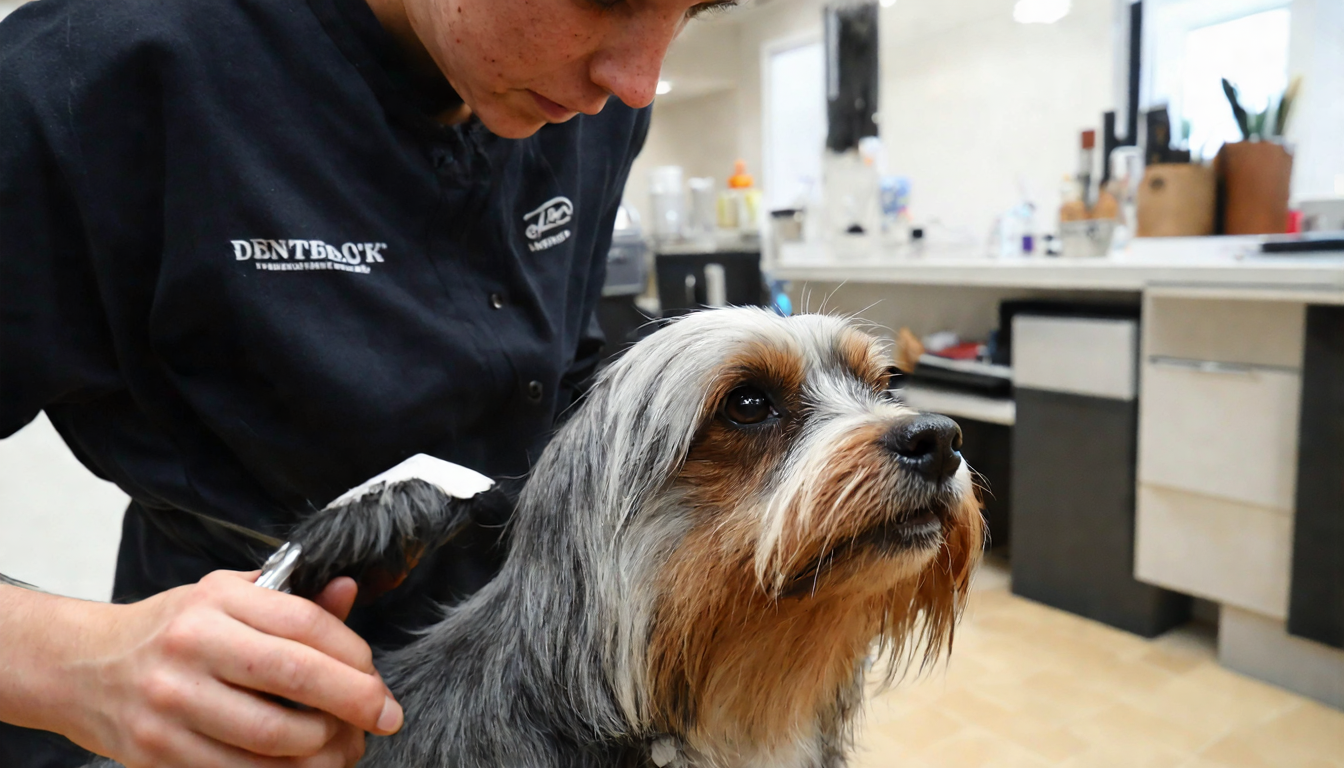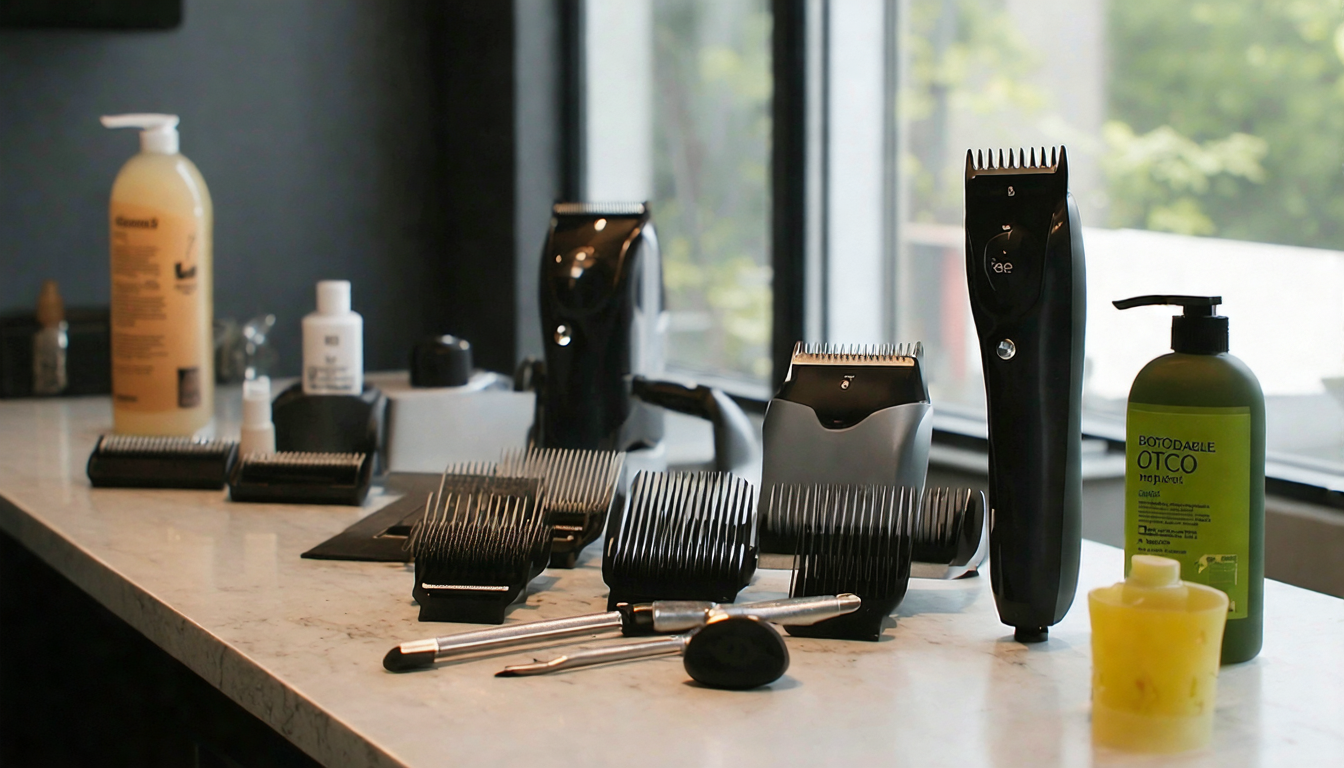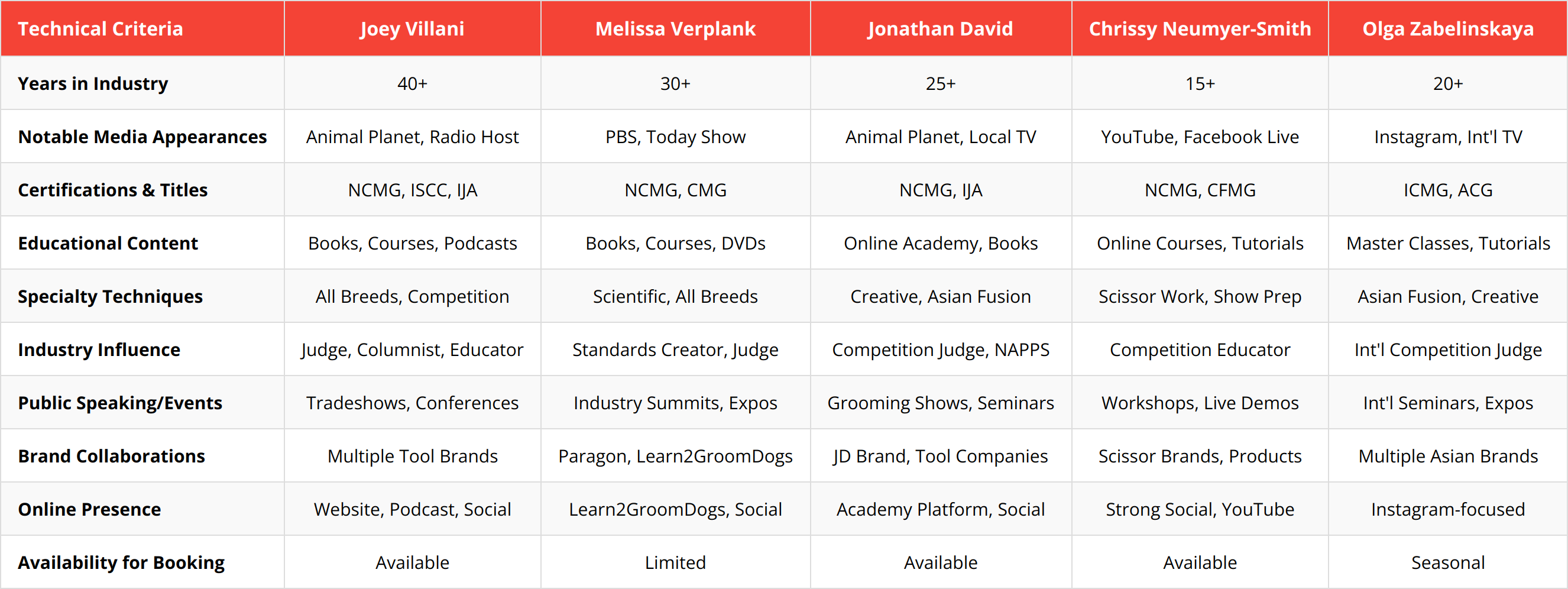The pet grooming industry is evolving faster than ever, with new standards, tools, and expectations shaping what it means to be a professional groomer in 2025. Meeting these demands requires more than basic skills—it calls for certification, specialized techniques, and a strategic approach to career development.
Mastering professional grooming today means staying ahead through accredited programs, mastering breed-specific care, and adopting the latest safety protocols and eco-friendly trends. Success hinges on combining technical expertise with effective communication and business savvy to stand out in a competitive market.
Let’s explore the essential certifications, skills, tools, and industry trends that form the ultimate career blueprint for professional groomers ready to thrive in 2025.

Modern grooming tools and their impact on professional groomer efficiency.
The pet grooming industry is undergoing significant transformation as market demands evolve with increasing focus on animal welfare and customer expectations. A skilled professional groomer in 2025 must navigate a landscape marked by rising standards, where comprehensive knowledge, technical expertise, and compassionate handling are paramount.
The industry has seen a steady expansion driven by the growing pet ownership trend and heightened awareness of grooming's role in pet health. Key challenges persist, including managing difficult behaviors, keeping pace with technological advancements, and adhering to stricter hygiene regulations, yet opportunities abound for career growth. Professional groomers with advanced skills, certifications, and business acumen are well-positioned to capitalize on niche markets and premium service sectors.
Entering the profession demands both foundational education and ongoing skill development. While formal entry requirements vary, prospective groomers commonly pursue vocational training or pet care diplomas as baseline credentials. Fundamental studies encompass animal anatomy, breed characteristics, and hygiene protocols.
Equally critical is committing to continuous professional development. Specialization in areas like show grooming or breed-specific techniques can distinguish a groomer within a competitive market.
Embracing modern training modalities, such as online dog grooming courses, positions learners to stay current and improve proficiency.
Certification plays a pivotal role in affirming a groomer’s expertise and credibility to employers and clients alike. Accredited pet groomer certification programs ensure candidates meet rigorous industry standards and are current with best practices in animal care and grooming methodologies.
Leading organizations offering recognized certifications include the National Dog Groomers Association of America (NDGAA) and the International Professional Groomers, Inc. These certifications are increasingly influential in career progression and can open doors to higher-paying and leadership roles.
Targeted training programs, such as advanced dog grooming courses, offer substantial benefits for those seeking niche expertise. By concentrating on specific breeds or service types like show or therapeutic grooming, groomers refine their techniques and broaden their market appeal.
Specialized courses also facilitate mastery over increasingly complex tools and grooming styles, thus enhancing technical proficiency. Investing in these courses can significantly impact marketability and client satisfaction in a specialized grooming environment, vital for sustained professional growth.

Professional groomer applying breed-specific grooming techniques.
A professional groomer must adeptly tailor grooming techniques to suit the unique coat types, body shapes, and skin sensitivities across a wide range of breeds. Proficiency in breed-specific cuts—from the classic Poodle clip to the long-hair maintenance of Maltese dogs—is essential.
Equally important is understanding handling methods that accommodate different animal temperaments, ensuring grooming sessions are safe and effective. Adapting approach and tools to an animal’s behavior enhances the grooming experience and minimizes stress.
Integrating knowledge of pet psychology into grooming enhances both animal welfare and service quality. Recognizing stress signals and behavioral cues allows the professional groomer to adopt calming strategies, fostering safer interactions.
Moreover, effective client communication about handling and grooming best practices builds trust and promotes customer retention. Sharing care tips and setting realistic expectations helps position the groomer as a reliable expert in professional pet grooming, reinforcing client relationships.
The modern professional groomer benefits from an array of advanced grooming tools and supplies designed to improve precision, efficiency, and animal comfort. From ergonomic clippers to innovative dryers equipped with temperature controls, technology is enhancing grooming outcomes.
The following comparison chart evaluates the top 5 grooming tools and educational resources to help you make informed decisions about your professional grooming toolkit:

Based on this analysis, Joey Villani’s grooming education and the Comprehensive Grooming Kit emerge as top recommendations for professional groomers due to their combination of technical expertise and broad practical application. These resources represent the pinnacle of grooming education and tool accessibility.
Maintaining high standards of safety and hygiene is fundamental to professional grooming. Protocols must safeguard not only the pet but also the groomer through sterilization practices, handling of tools, and environmental cleanliness.
Compliance with regulatory standards, including local health codes and industry best practices, minimizes risks of infections and accidents in grooming salons. Embedding these protocols into daily operations enhances reputation and ensures operational longevity.
The pet grooming market is increasingly embracing eco-friendly products, reflecting broader environmental concerns of clients and businesses. Using biodegradable shampoos, natural grooming aids, and energy-efficient equipment speaks to a sustainable grooming ethos.
This green grooming approach can positively influence client perception, positioning the groomer as a responsible professional while benefiting pet health by reducing exposure to harsh chemicals.
The role of the professional groomer is expanding to include elements of pet wellness and preventive care. Incorporating wellness checks such as skin assessments and advising on nutrition or exercise integrates grooming within a holistic pet care framework.
Offering wellness-focused services not only attracts health-conscious clients but also contributes to deeper customer loyalty and diversified revenue streams. This emerging trend signals a shift towards multifaceted grooming careers.
Aspiring salon owners and independent groomers must develop robust business management skills to build sustainable careers. Key proficiencies include financial planning, inventory management, and customer relationship strategies.
Successful marketing and client acquisition leverage social media, local partnerships, and diversified service offerings to attract and retain clients. A strategic approach fosters scalability and long-term profitability for professional groomers. Consider expert guidance in pet business consulting.
The grooming profession demands lifelong learning to maintain credentials and adapt to advancements. Regularly updating certifications—such as those offered by leading bodies—and attending industry workshops ensures compliance with evolving standards and enhances competitive advantage.
Groomers benefit from accessing a network of professional organizations and educational platforms dedicated to career development, supporting sustained growth and expertise consolidation.
Clear, empathetic communication is essential for educating clients about grooming procedures, aftercare, and pet maintenance. Explaining services transparently and listening to client concerns fosters collaboration and confidence in the groomer’s expertise.
Managing expectations professionally, especially when addressing complex behaviors or health issues, can mitigate conflicts and promote positive client experiences.
Building enduring client relationships hinges on transparency, consistent quality, and personalized service. Tailoring grooming plans to individual pet needs and proactively following up cultivates loyalty.
Leveraging these communication strategies not only encourages repeat business but also generates valuable referrals, assisting professional groomers in expanding their client base sustainably.
Stepping confidently into the professional grooming world of 2025 means embracing a career that blends technical mastery, ongoing education, and strategic business insight. By developing specialized skills, obtaining recognized certifications, and adopting cutting-edge tools and eco-conscious practices, you position yourself at the forefront of an evolving industry that values both pet welfare and client trust.
To build a thriving grooming career, prioritize these essentials:
Start today by exploring professional development resources like Joey Villani’s grooming education and planning your certification path. Upgrade your toolkit with the latest ergonomic equipment and integrate eco-friendly products into your routine. Most importantly, sharpen your communication skills to deepen client trust and satisfaction.
Your career success as a professional groomer depends on embracing growth, innovation, and empathy—qualities that turn a grooming session into a lasting bond with pets and their owners.
Elevate your craft, empower your business, and inspire loyal clients—because in 2025, professional grooming is more than a service; it’s a commitment to excellence that transforms lives one pet at a time.
For ongoing career development ideas and industry insights:
This article is designed to provide a comprehensive and actionable pathway for professional groomers aiming to excel in the fast-evolving pet grooming industry in 2025.